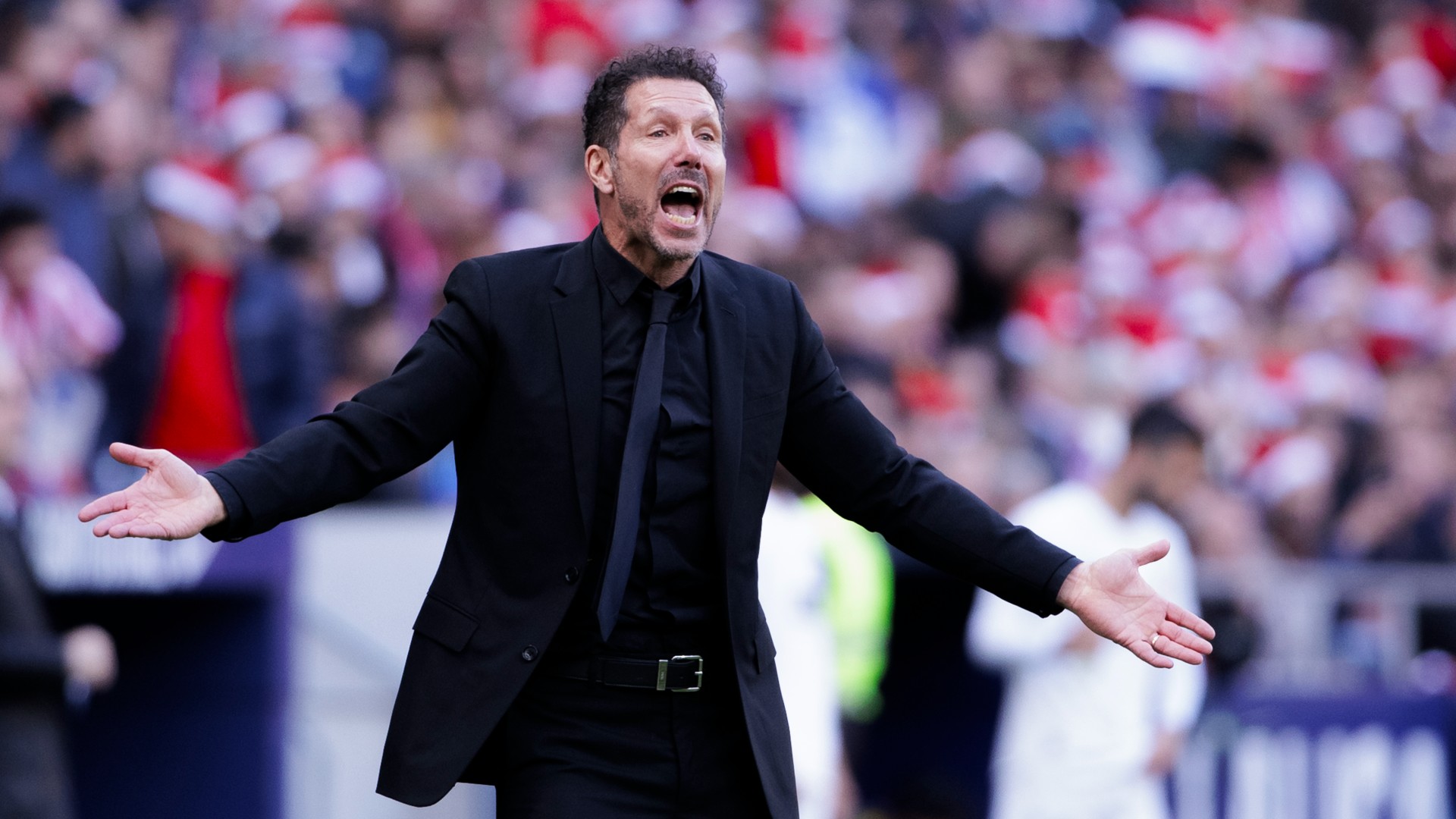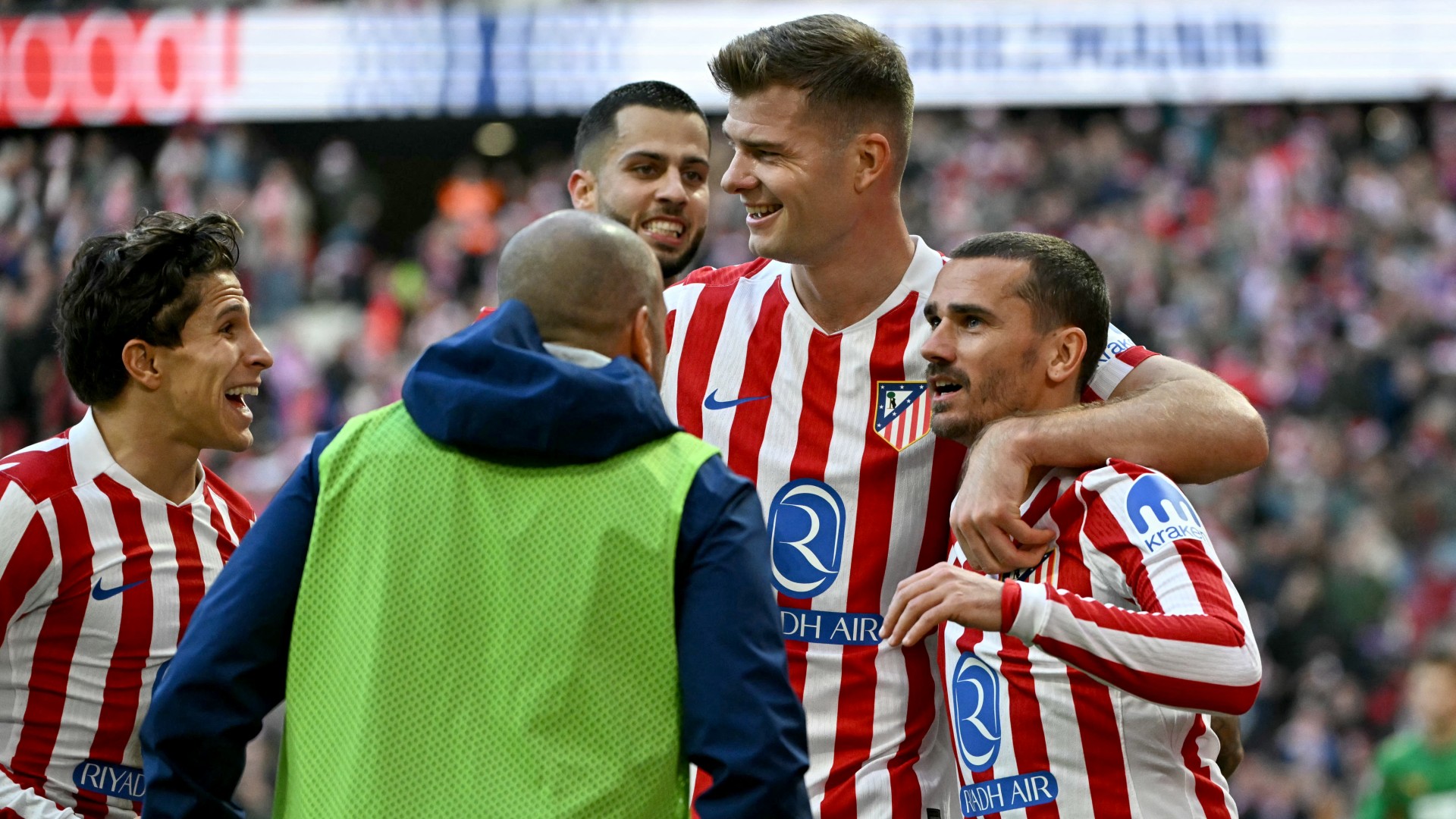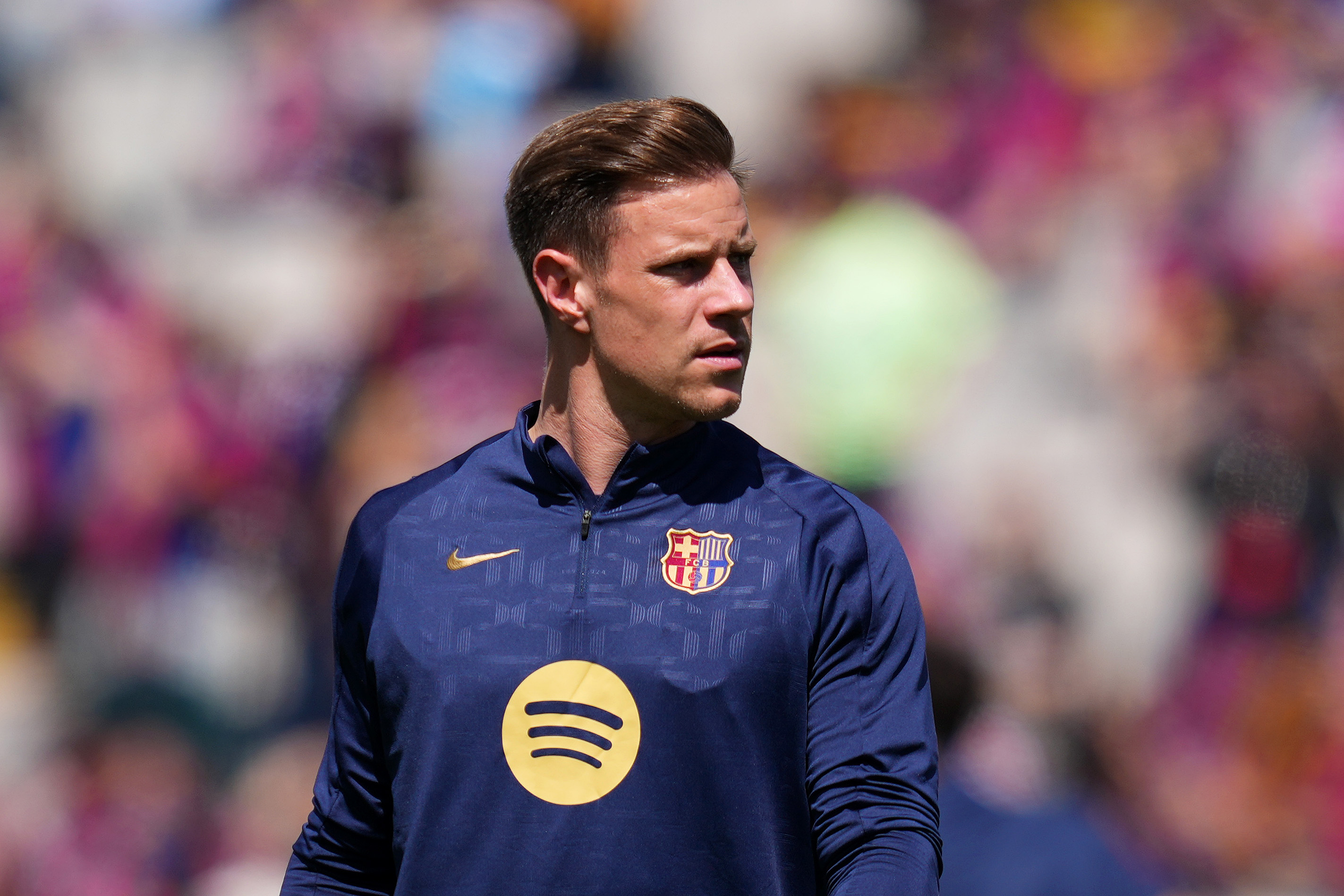La Liga 2015/2016: A Team-By-Team Review
A team-by-team summary - including their best player - of the current La Liga campaign.
beIN SPORTS
By David Cartlidge (@davidjaca)
And with a day of relegation drama La Liga 2015/2016 came to an end. Barcelona's tease of giving Real Madrid and Atleti a chance to claim the crown in the last few weeks was matched by a final day of ferocious activity at the bottom. While Spanish teams have excelled in European competition, they have also entertained domestically. With that, here is a team-by-team summary (including their best player) of the current La Liga campaign...
Barcelona: They won the league, lost it, then won it all over again. If winning only La Liga and potentially a Copa del Rey is a failure then many should be envious. Barça clearly ran out of steam for a period and it was to be expected. This team has played a lot of games and needs a proper rest, while the squad on the whole lacked the depth to facilitate for any setbacks. (Luis Suarez)
Real Madrid: A season split in two halves: with Rafa, and with Zizou. The former brought about a stagnation to the club, one that does not fit its grandeur. We saw unhappy players, a disorganised system and general ill feeling from the fans. Zizou, while the jury may still be out on his managerial abilities, lifted the gloom and made his players enjoy their football again. Sometimes in all the technicalities football brings, this is often overlooked. (Luka Modric)
Atletico Madrid: At one point it seemed they were grind out a title win, but ultimately they fell short. No surprise really given their epic adventures in the Champions League that eventually caught up with Diego Simeone’s men. The sale of Jackson Martinez could’ve gone two ways but Atleti did what they know best, and unified. They also managed to form a new superstar in the shape of Saul. (Saul)
Villarreal: From January 13th 2013 and sitting 7th in Segunda, to the current status of Champions League qualification and an admirable Europa League showing. How time has passed in such a wonderful manner at Villarreal under Marcelino, one of the most outstanding coaches in Spain. He has found the perfect balance of stylish football with ruggedness. The former is what this club believes they are based on, while a lack of the latter saw them get relegated. The work at this club has been marvellous. (Bruno)
Athletic Bilbao: Another excellent Spanish coach extracting every bit of potential out of his squad, Ernesto Valverde continues to make his era at the Basque outfit a memorable one. A trophy, a Europa League finish and an admirable run in said competition. All while navigating one of the most brutal paths of injuries in the league. Not once has Valverde had a full array of talent at his disposal, but he never complained. Instead he continued what has been a stunning volume of work. (Beñat)
Celta Vigo: A continuation of Paco Herrera and Luis Enrique’s work has seen Toto Berizzo take Celta up yet another level. Every year in Vigo there is progress and this is what a fan wishes to see more than anything. Not regression, not stagnation. Instead Celta continue to move forward on the most modest of budgets. They work the market well, and play excellent football too. The performances against Atleti spring to mind as a marker to what Celta are capable of. How they cope without Miguel Torrecilla, their Sporting Director engineering much of this progress, will be fascinating. (Jonny)
Sevilla: 7th in the league, and the worst away record in Europe. It’s simply not good enough from Sevilla despite their continued heroics in the Europa League. They could win that in emphatic fashion in Basel but it should not disguise the fact this team has underwhelmed in La Liga. Monchi needs to buy better in the summer and regain his golden touch, while hoping he doesn’t lose his best players en-masse yet again. He may also need to consider Unai Emery’s era is becoming stale. (Kevin Gameiro)
Malaga: There are several stories in La Liga this season and this one sits near the top of the pile. Malaga lost their best players in the summer and responded by recruiting modestly. What they retained however was a fine coach in Javi Gracia, one who works the fine margins with great intelligence. Masterminding performances against Barcelona is not his only forte, he has instead produced a marvellous campaign for a squad that on the outset, looked a relegation battle cert. (Nacho Camacho)
Real Sociedad: A 9th place finish may not look terrible, but internally something is worrying at la Real. They are burdened with a lack of ambition, and a lack of direction in how they should progress. Their star players seem demotivated and only produce in the big games, while some (see: Carlos Vela) don’t turn up at all. It’s a talented bunch but there appears to be a lack of feeling at the club, and a desire to do the minimum rather than exceed. (Mikel Oyarzabal)
Real Betis: A fine 10th place finish for Real Betis, especially considering they had one of the worst summer transfer windows in their history. Once again they were propped up by the goals of Ruben Castro, now 34, who scored 19 goals, contributed directly to 18 points this season. Credit too goes to Juan Merino, who yet again when called upon after a managerial change saved the club. He made Betis tougher, and less vulnerable on set plays, arguably their weakest areas. (Ruben Castro)
UD Las Palmas: Credit to Las Palmas for finishing 11th, specially when their season didn’t start until October 10th 2015. That was the day Quique Setien walked into he club and with it, brought about a change of mentality that would climax with Las Palmas securing their top flight status rather than being embroiled in a relegation battle. In fact, such was the work of Setien that Las Palmas were thinking of Europe for a period. His tremendous work at Lugo was largely ignored, but his work in the Canaries cannot. He brought together a squad and made them organised, tough to beat and entertaining on the front foot. (Roque Mesa)
Valencia: Oh, Valencia, what are we going to do with you? Two steps forward, then ten back. After a phenomenal campaign under Nuno there was expectation Valencia could build and become a force again. As in, for real this time. No more false dawns. Alas, Valencia conspired to have a terrible summer, both in the transfer market and behind the scenes. The pattern for the season was sewn in those days, and it was a case of taking the blows as they arrived. And there have been plenty. Gary Neville’s appointment was a fatal blow as the season tailed off in dramatic circumstances, while Pako Ayestarán has been only a temporary saviour. Valencia’s summer this time around needs to be perfect. Anything less and where the club end up is unthinkable. (Jaume)
Espanyol: You get the feeling from Espanyol that you sometimes wonder why they are here. They bob and weave in the lower half of the table regularly, and fail to create any real sense of ambition at the club. They are desperately searching for an identity and this season when they attempted to be Atletico Madrid-light they went about it in the wrong way entirely. A forgettable year in which even Marco Asensio seemed subdued for the most part. (Rubén Duarte)
Eibar: A superb first half of the season, a poor second. Eibar’s story in La Liga so far is a simple one. But it’s still incredible given the size and resources of this club. Borja Baston’s efforts in front of goal were vital, while the core of the team that has been at the club since promotion dug deep yet again. They've also captured a real gem in Gonzalo Escalante, as the club looks to build a platform for the coming years. (Borja Bastón)
Deportivo La Coruna: Like Eibar, they started strong only to fade out. Almost to the level they got sucked into a relegation battle. Alas, they avoided doing so and Víctor Sánchez deserves credit for his work. A young stud in the managerial game, he created a sense of unity and identity that Depor had been missing. Hopefully the club persists with him but in Spain, patience and continuity are in short supply. (Sidnei)
Granada: More of the same from Granada as their mishmash squad failed to deliver on pre-season expectations. Every summer they pick up interesting players but fail to bring them together for the good of the team. What’s left is individual displays and a scrap at the end of the season. Granada must change this before suffering Rayo’s fate of living on the edge for too long. For one, it’s time they got their coaching selections correct. (Youssef El-Arabi)
Sporting Gijon: The miracle continues in Gijon, with the squad largely made up of local players and academy graduates. Sporting has no choice of course, but it’s what every fan loves to see - the boys doing good. And they have. Even if Sporting had been relegated their fans would appreciate what has been done by the staff both coaching and playing, such is the sentiment existing in Gijon. Expect another emotionally driven campaign next term. (Jony)
Rayo Vallecano: After five incredible years in La Liga punching above their weight, and proving to be everyone’s second team, time finally ran out for Rayo Vallecano. They were left even shorter than usual in the summer and the brilliant Paco Jemez had his most difficult task since arriving at the club. Sadly, Jemez’s brilliance couldn't save Rayo this time and he will take the club into Segunda with his reputation still intact, such is the enormity of his work. Their fate was mathematically decided on the final day but fans will wonder what if for yours about the bizarre display at Anoeta the week prior. (Jozabed)
Getafe: 12 years Getafe have struggled to make themselves a proper La Liga club, and to be taken seriously. They’re a young club and their fanbase isn’t quite there, making them an easy target for oppositions fans. But they’ve in this 12 years built something, a respectable club that operates like any other. Fran Escriba unfortunately didn’t work out and once he’d been sacked it was even more of an uphill struggle. The team never really gelled and more flash sales didn’t help. It will be interesting to see what becomes of them in Segunda. (Pablo Sarabia)
Levante: Levante’s realisation they couldn’t defend came in January when they decided to bring in lots of attacking players. If they conceded two, then they’d score three. Then came the realisation it wouldn’t be that simple. Rubi is a good coach but all too often refused to take enough risks in key moments, while defensively there was a failure to draw up a competent system. A pattern is emerging here, but yet another club that fell foul of a poor summer. (Morales)





















